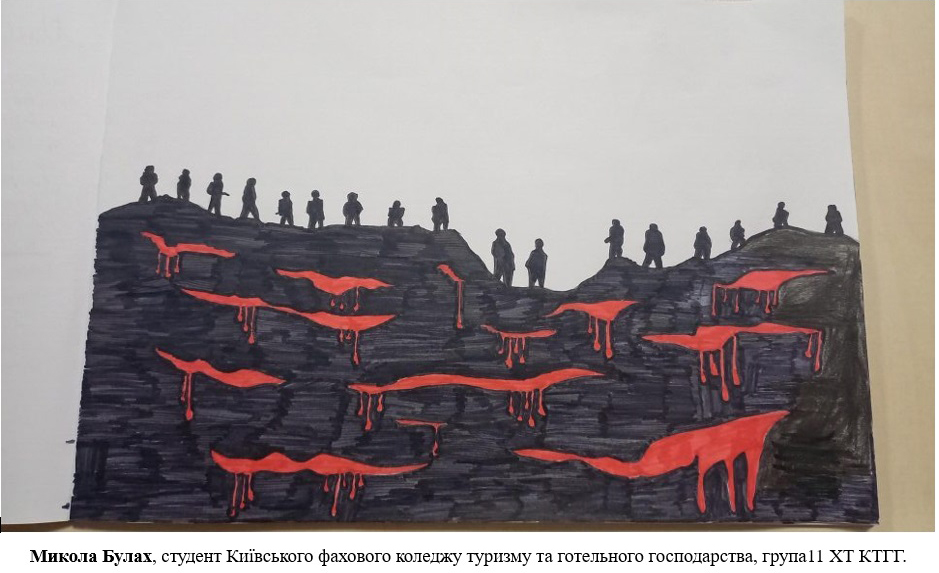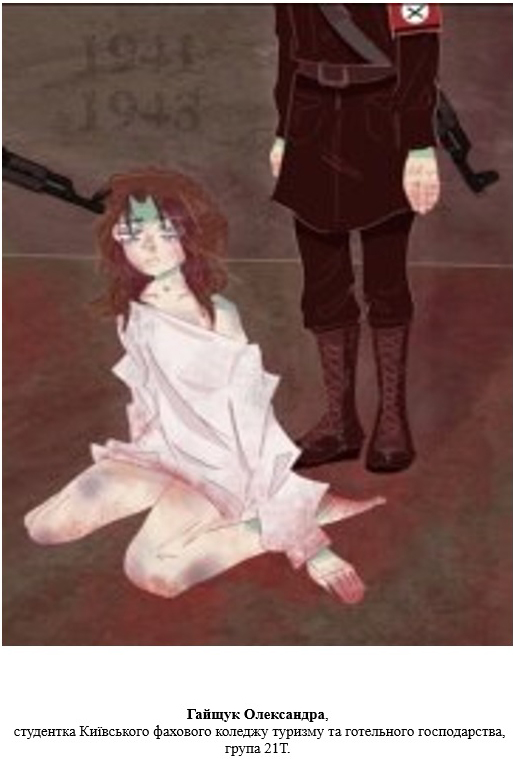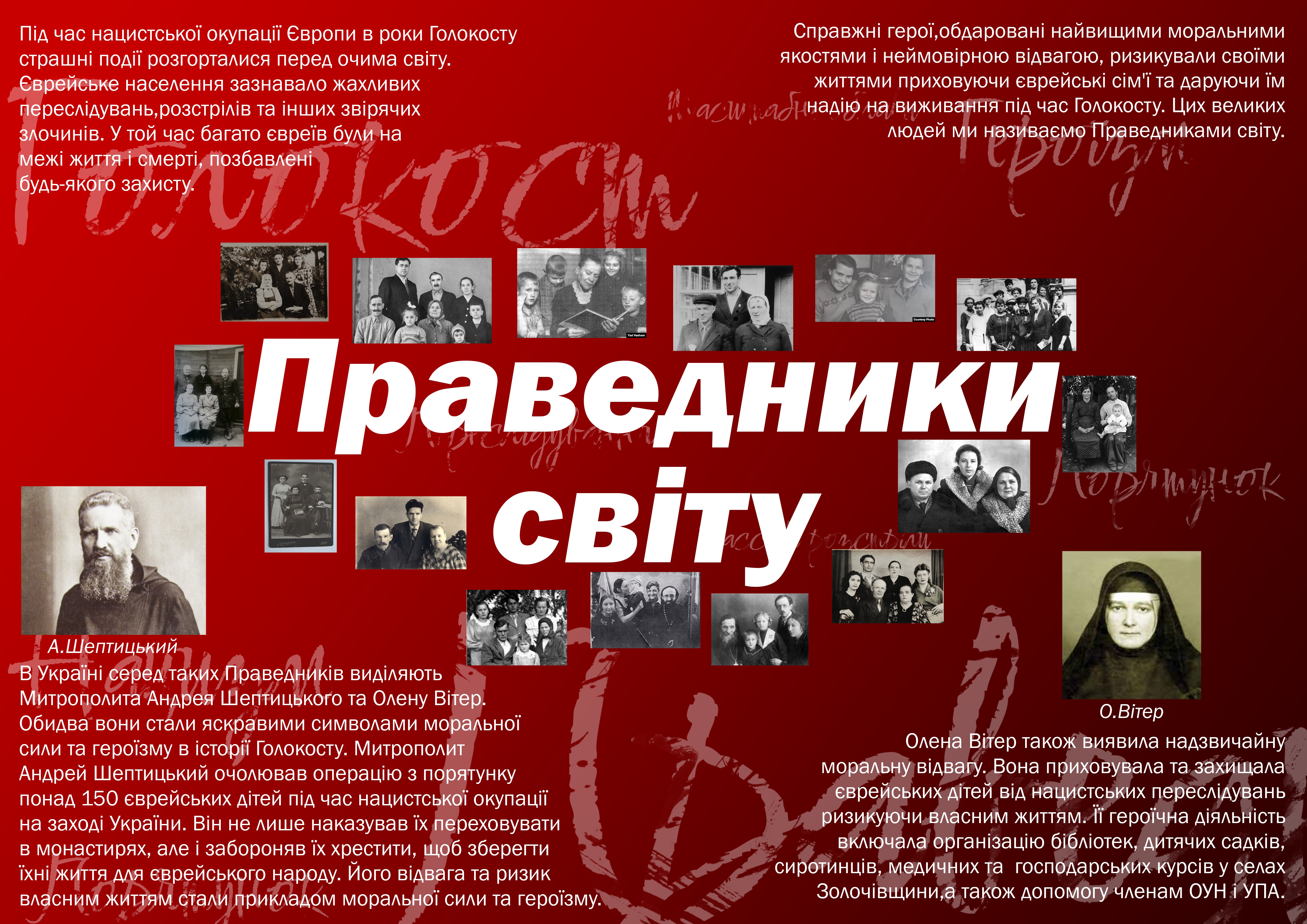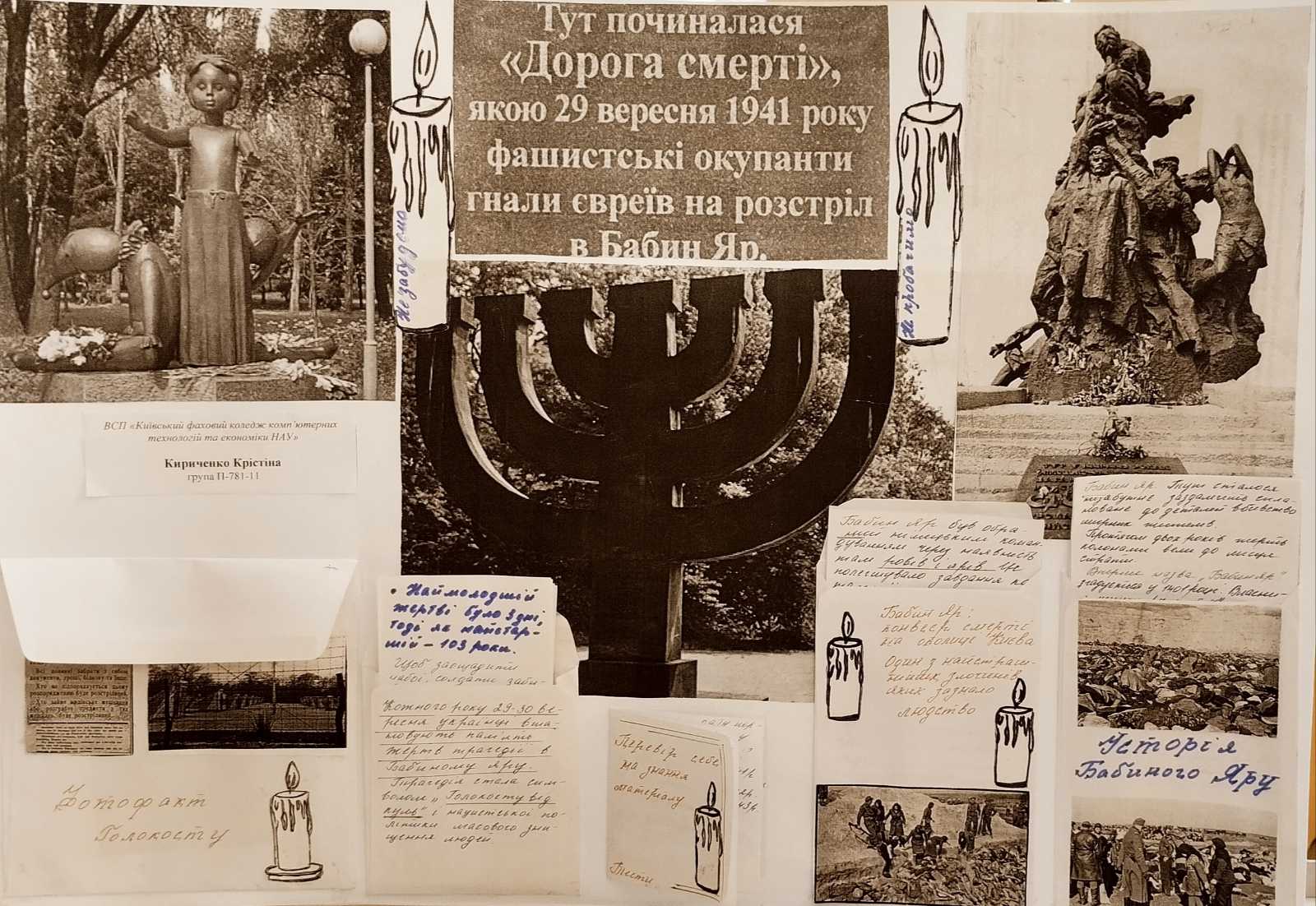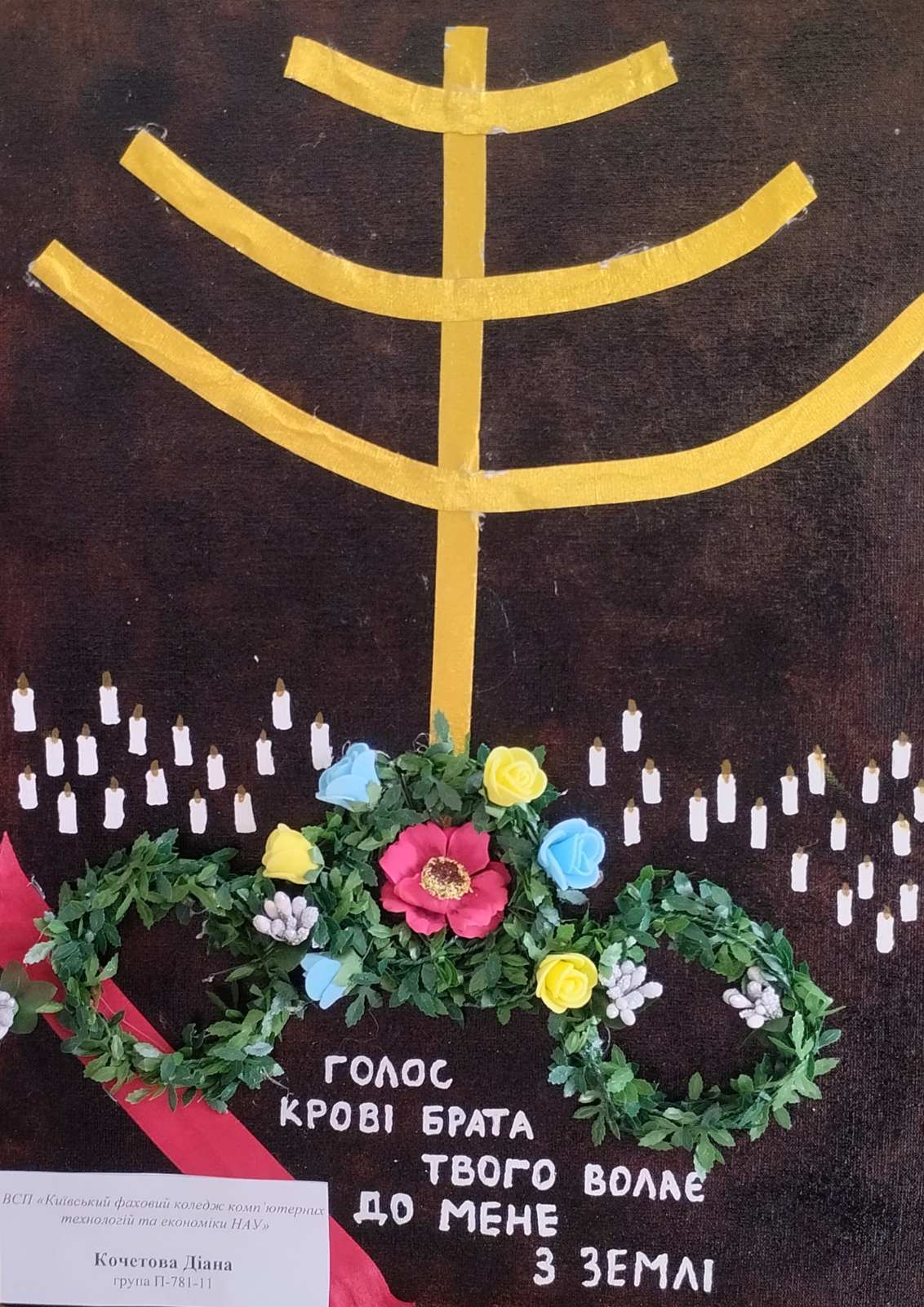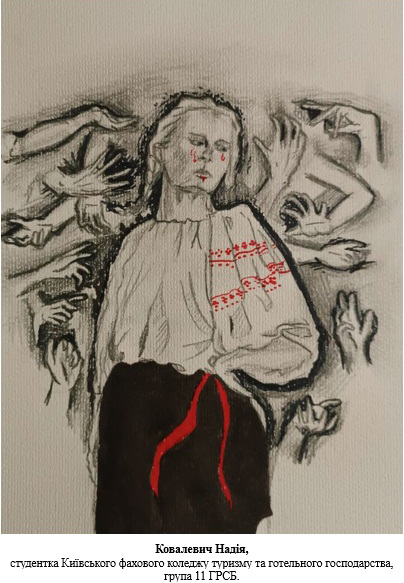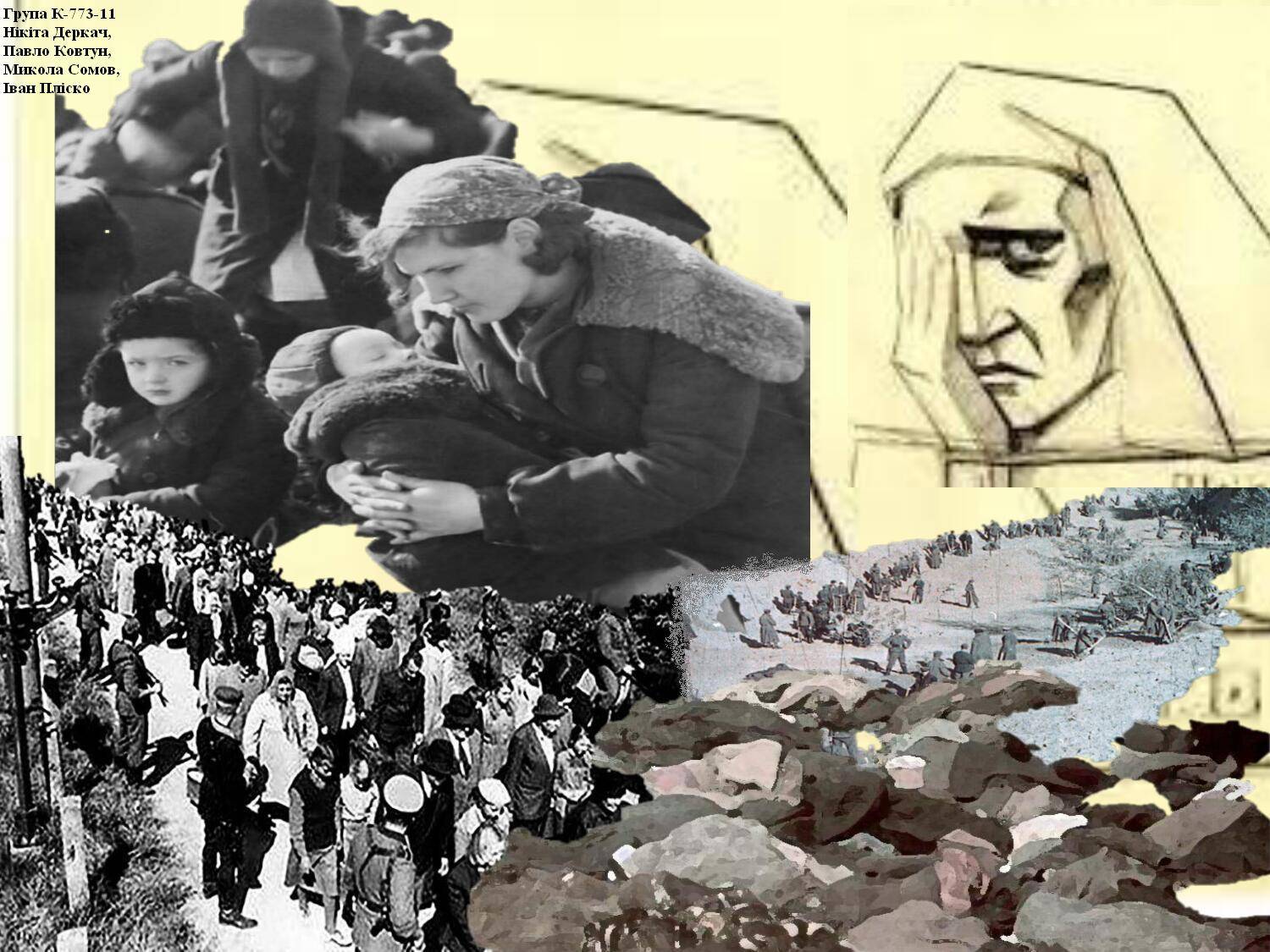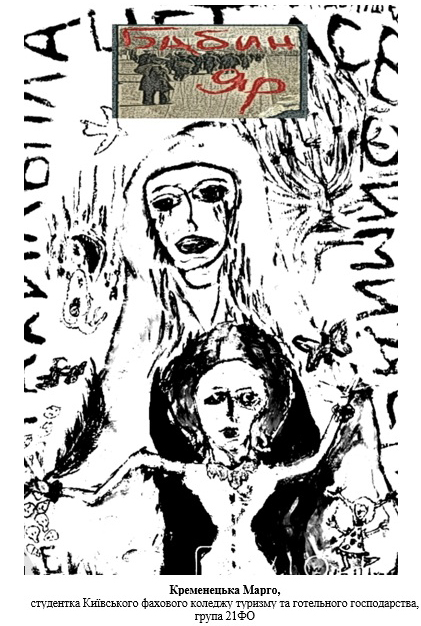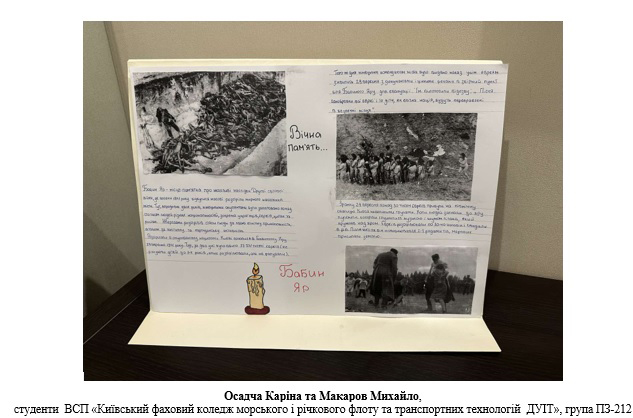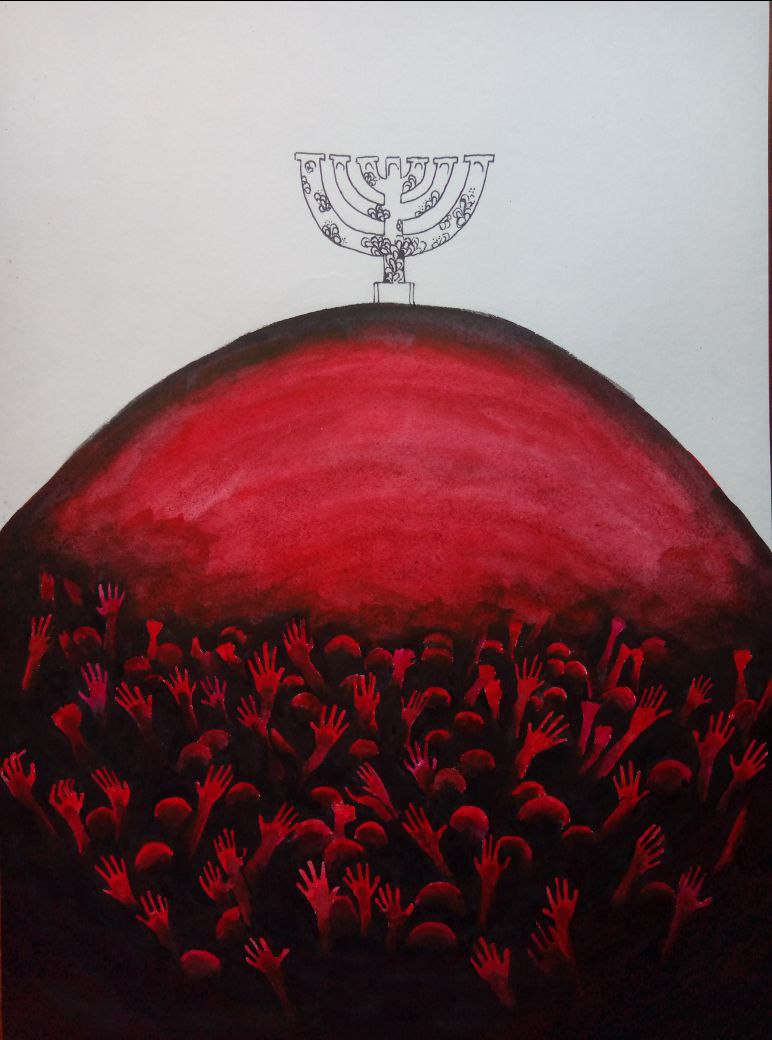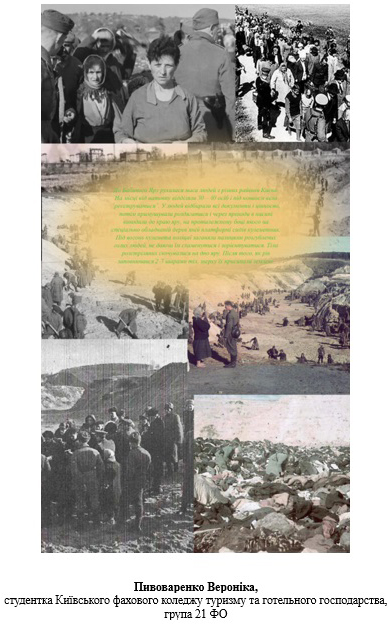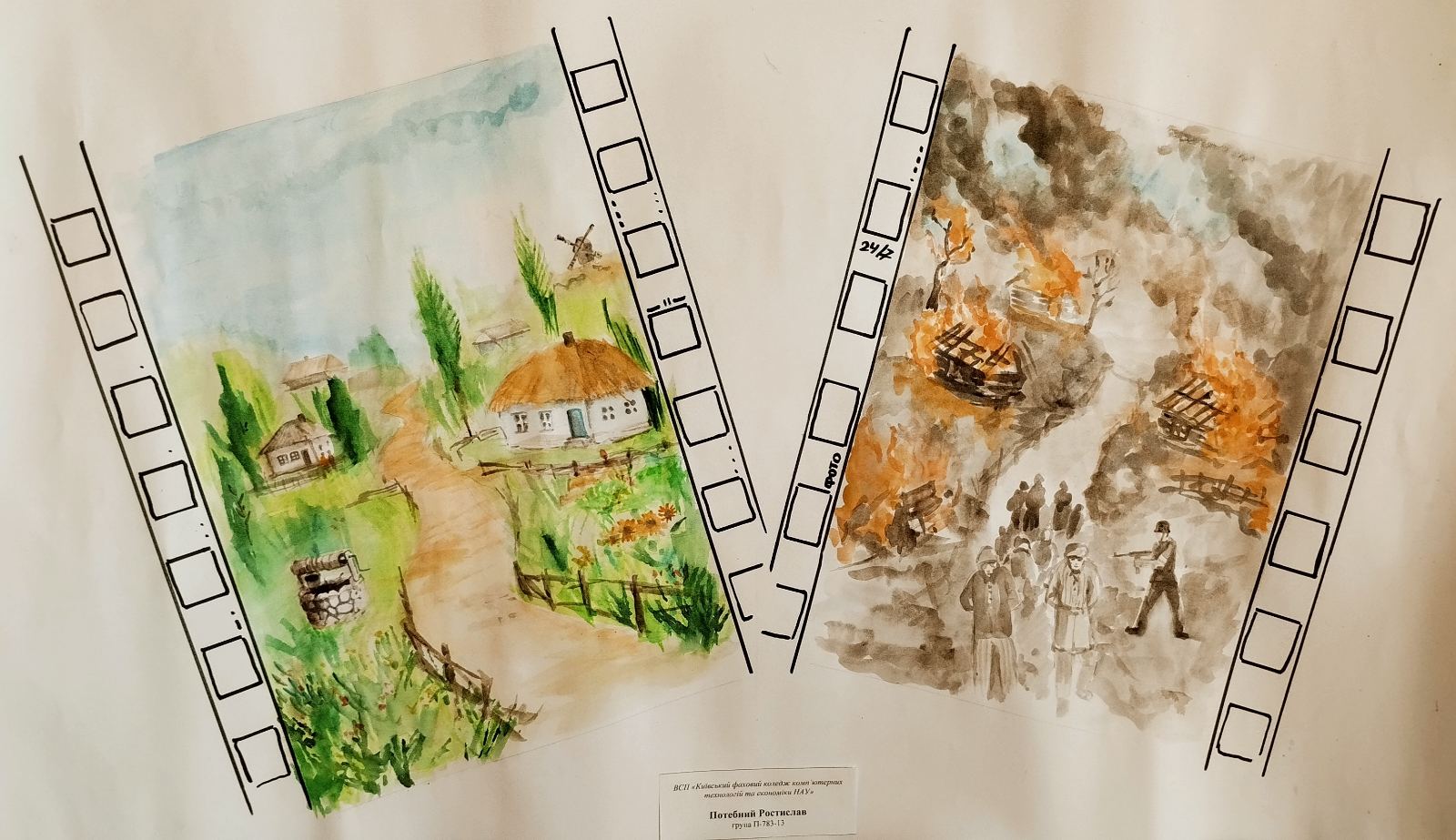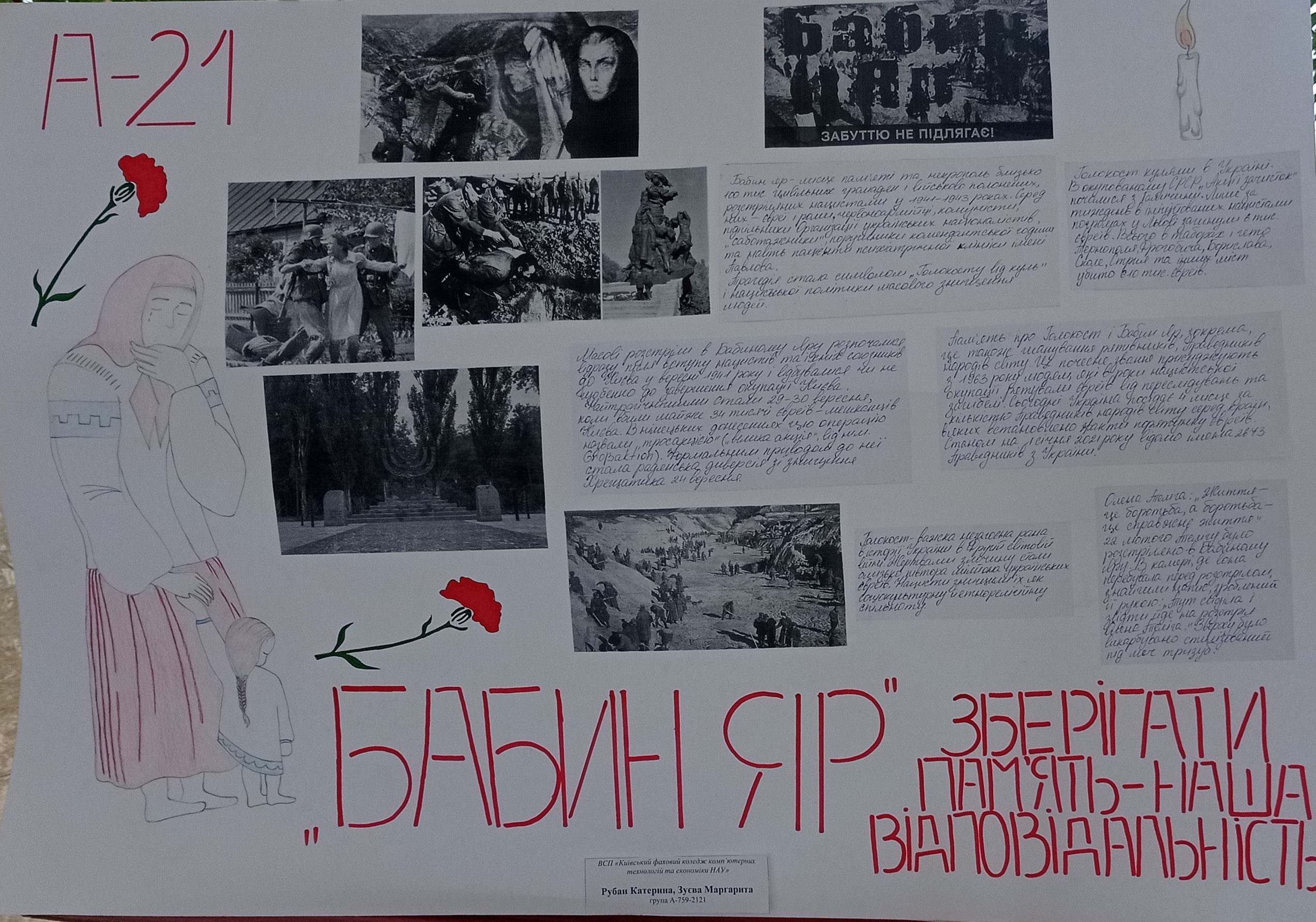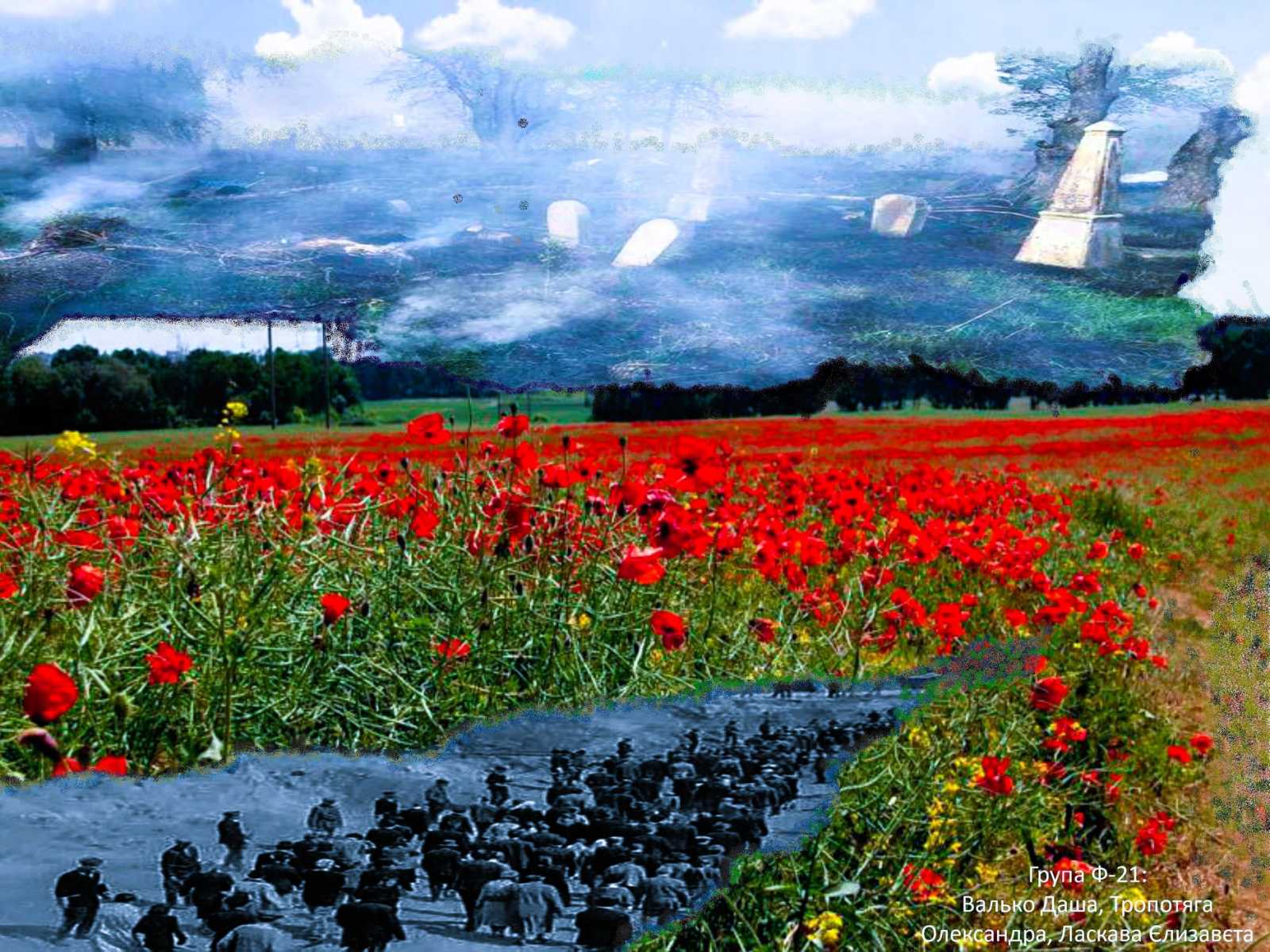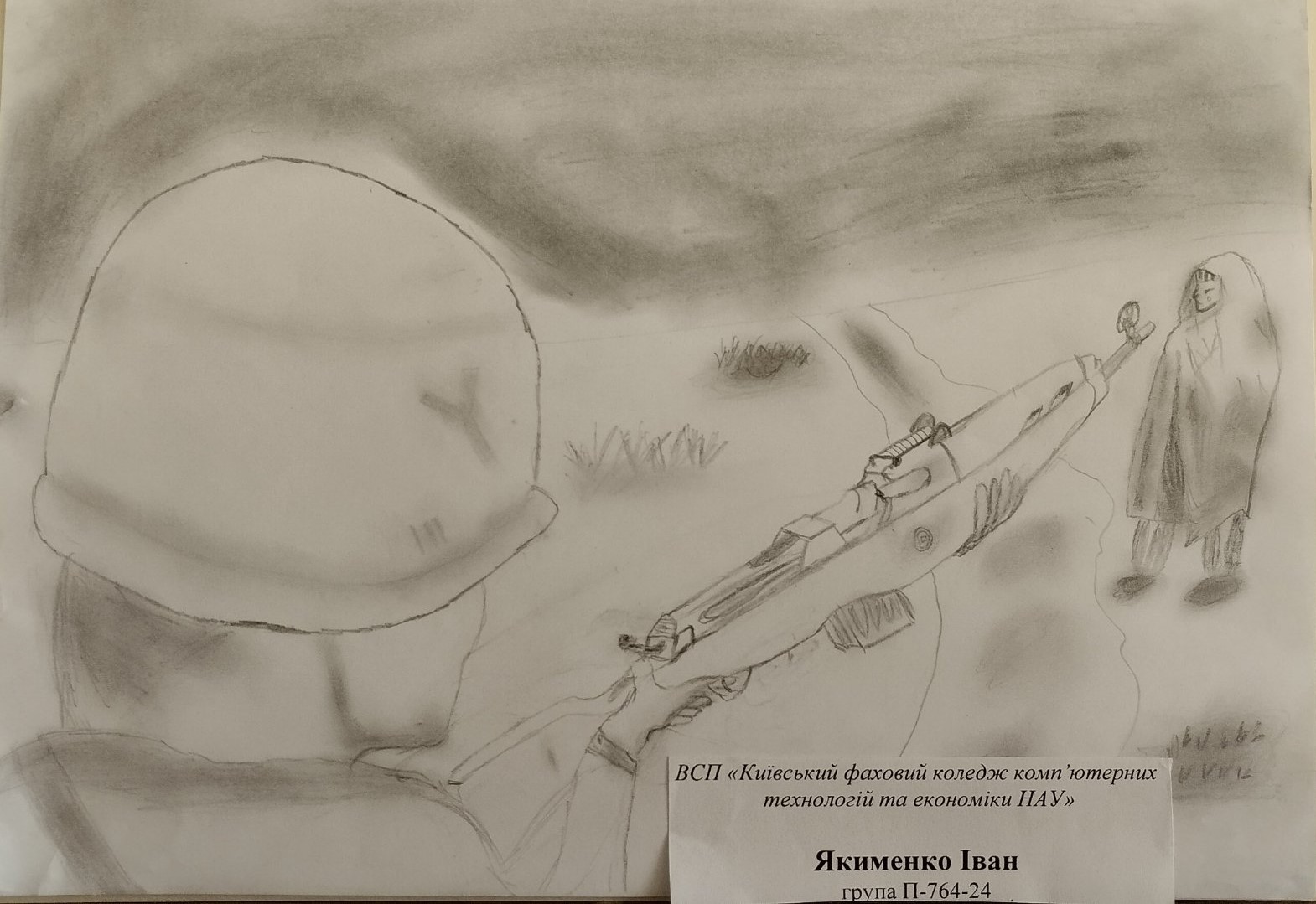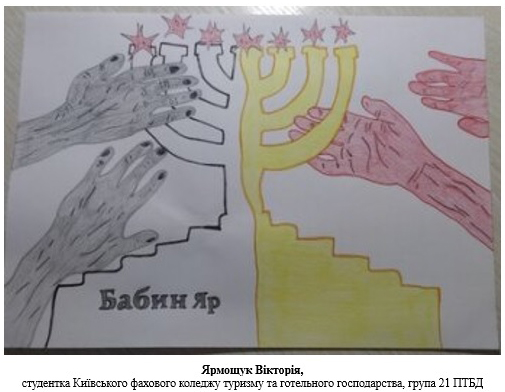Babyn Yar: Reflection. Exhibition of student works
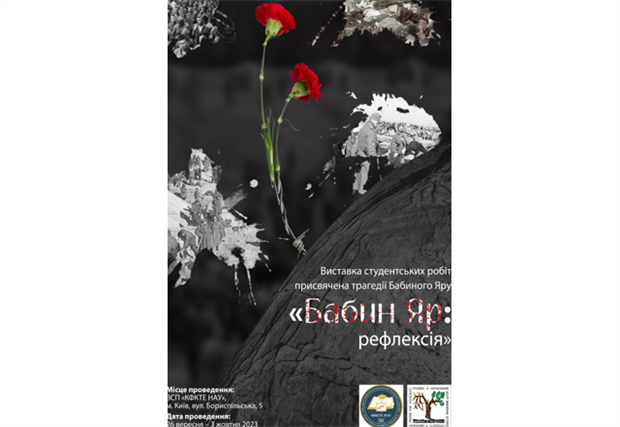 From September 26 to October 3, 2023, an exhibition of student works dedicated to the anniversary of the Babyn Yar tragedy "Babyn Yar: Reflection" was held at the Kyiv Profesional College of Computer Technology and Economics of the National Aviation University.
From September 26 to October 3, 2023, an exhibition of student works dedicated to the anniversary of the Babyn Yar tragedy "Babyn Yar: Reflection" was held at the Kyiv Profesional College of Computer Technology and Economics of the National Aviation University.
The Ukrainian Center for Holocaust Studies provided support for the opening of the exhibition.
September 29 is the Memorial Day of the Babyn Yar tragedy.
Babyn Yar is a place of remembrance and a necropolis for about 100,000 civilians and prisoners of war shot by Nazis in 1941-1943. Among them were Kyiv Jews, as well as Roma, Red Army soldiers, communists, OUN underground members, prisoners of the Syrets concentration camp, "saboteurs," curfew violators, and even patients of the Pavlov Psychiatric Hospital. The mass shooting of Jews in Babyn Yar on September 29-30, 1941, became a symbol of the "Holocaust by Bullets" and the Nazi policy of mass murder.
The grand opening of the exhibition took place on September 26, 2023. The event was attended by teachers and students of the NAU College and the Kyiv Professional College of Maritime and River Fleet of the State University of Infrastructure and Technology, as well as with the direct participation of Anatolii Podolskyi, PhD, Director of the UCHS.
In his speech, Dr Podolskyi recalled the historical events of September 1941 in Kyiv, spoke about the executions of civilians in Babyn Yar until 1943, the cynical attitude of the Soviet authorities to the event (in particular, hiding the truth from people and the ban on honoring the memory of the executed) and expressed his gratitude to the modern young generation, which is able to empathize with the dead people they never knew.
Students’ works
Announcements
MoreLatest News
-
Research and methodological seminar for educators in Lviv
On 15-16 June, we met with more than twenty participants - mostly teachers from Lviv - to discuss the memory of the Holocaust, other cases of genocide on Ukrainian territory, and the current challenges of working with these topics.
[More] -
History of genocides in Ukraine: studying the experience and challenges of the present. Seminar in Kyiv
On 12-13 June, a research and methodological French-Ukrainian seminar History of genocides in Ukraine: studying the experience and challenges of the present was held in Kyiv. It was organised by the Shoah Memorial (Paris) and the Ukrainian Centre for Holocaust Studies (Kyiv) with the support of the Kuras Institute of Political and Ethnic Studies.
[More] -
Educational Materials “Nazi Genocide against Roma in Ukraine, 1941-1944”
The tragic fate of Roma people during WWII still remains largely unknown in Ukraine and generally in Europe. The new educational materials play an important role in returning Roma history and culture into the history and culture of modern Ukraine, unveiling Roma cultural heritage and the tragic events of WWII genocide against them.
[More] -
(No) Children’s Stories Exhibition returned to Chernivtsi
In May-June 2024, Chernivtsi once again invited the interactive exhibition (No) Children’s Stories. This time, it was hosted by Chernivtsi Gymnasium No. 17, and initiated by history and law teacher Varvara Bodnariuk. The students of 7-9 grades volunteered to host the exhibition and during the month of the event, they gave tours to more than 400 people, including students from their school, other schools in the city, and even the mayor of Chernivtsi and a foreign delegation from Dusseldorf (Germany) with the mayor of the city.
[More] -
Learning From The Past - Acting For The Future seminar
On 18-19 May, the seminar Learning from the Past - Acting for the Future was held in Kyiv. It was a joint event of The Olga Lengyel Institute, New York, and the Ukrainian Center for Holocaust Studies, funded by the Olga Lengyel Institute for Holocaust Studies and Human Rights.
[More]
